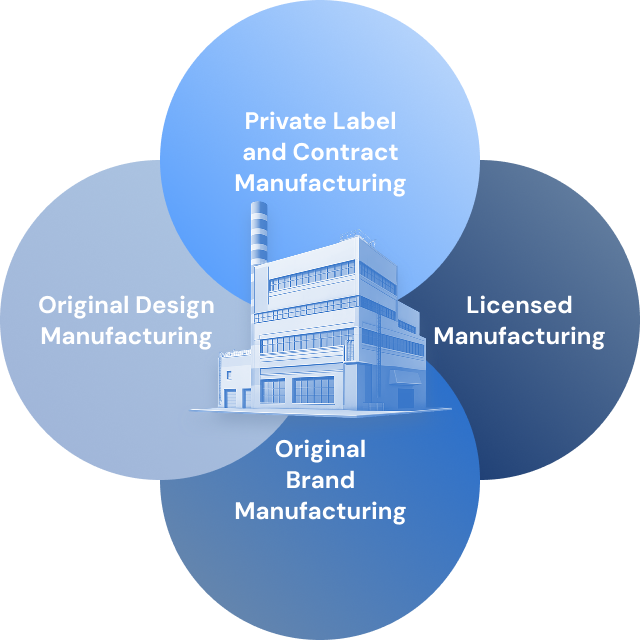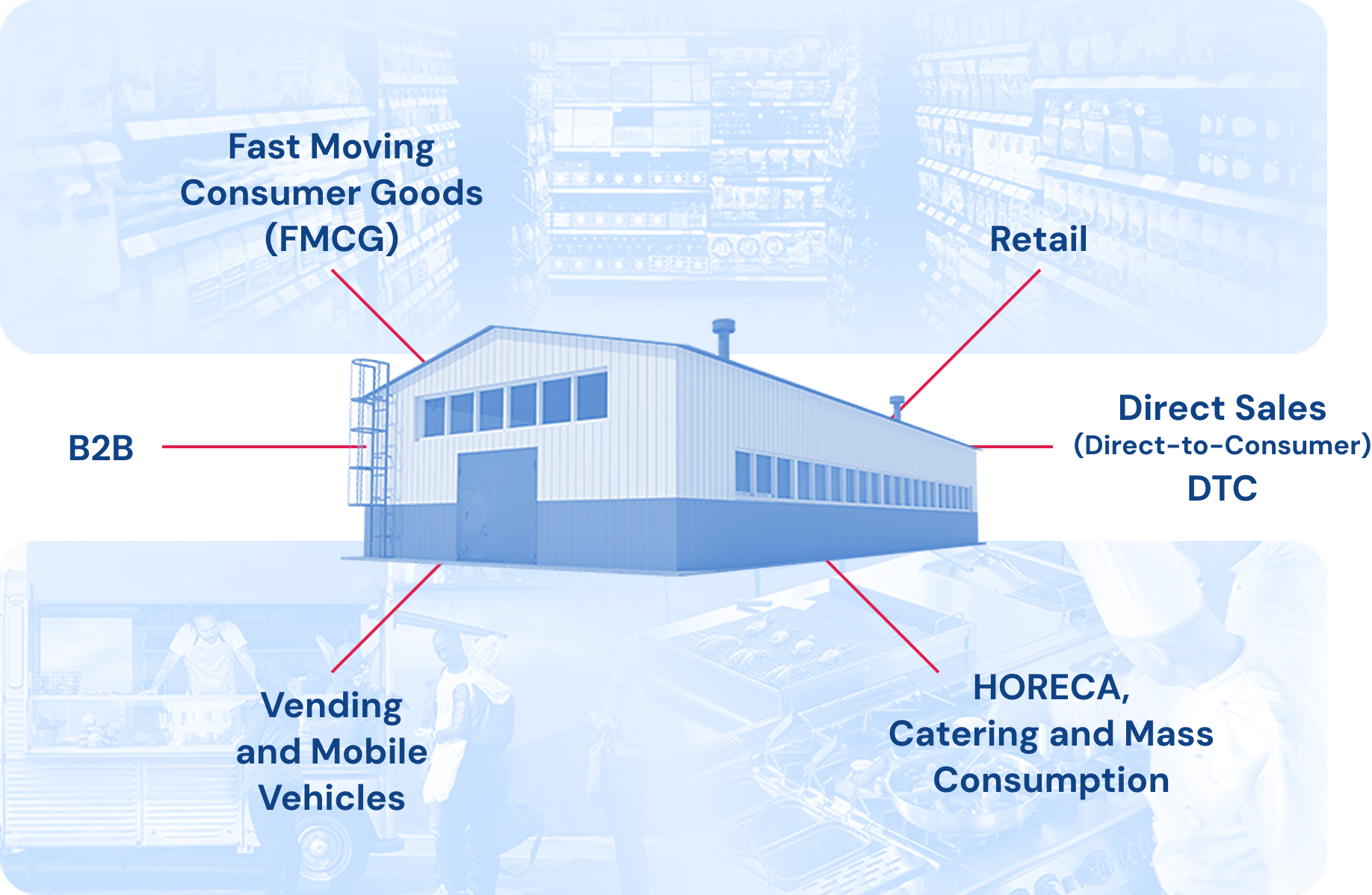
We employ a variety of approaches and models to identify, evaluate, and support promising startups. These include sector-focused strategies, stage-specific investments, and hands-on mentorship, all designed to maximize returns while fostering innovation and business growth.
The food industry, with its dynamic and competitive structure, necessitates the development of strategic approaches to help businesses achieve sustainability and profitability goals. SFG, with its integrated model, creates operational synergies among its business partners and provides cost advantages through the efficient sharing of resources. By bringing together similar or complementary companies in its portfolio, this model promotes sectoral consolidation, creating efficiency gains, particularly in supply chains, distribution channels, and marketing, thereby providing a competitive advantage to SFG portfolio companies.


Vertical integration and sales channel diversification are of strategic importance in terms of cost control, market share growth, and customer satisfaction. The food value chain involves various actors from the field to the end consumer, including producers, traders, processors, and distributors, each playing a role at different stages. Vertical integration strengthens the control of the supply chain and manages costs, while sales channel diversification increases revenue potential by reaching a broader customer base, improving risk management, and supporting sustainable growth.
It is a model where a company develops its own design and manufactures for another brand. The product is marketed under the buyer company's brand, but the design and development belong to the manufacturing company.

